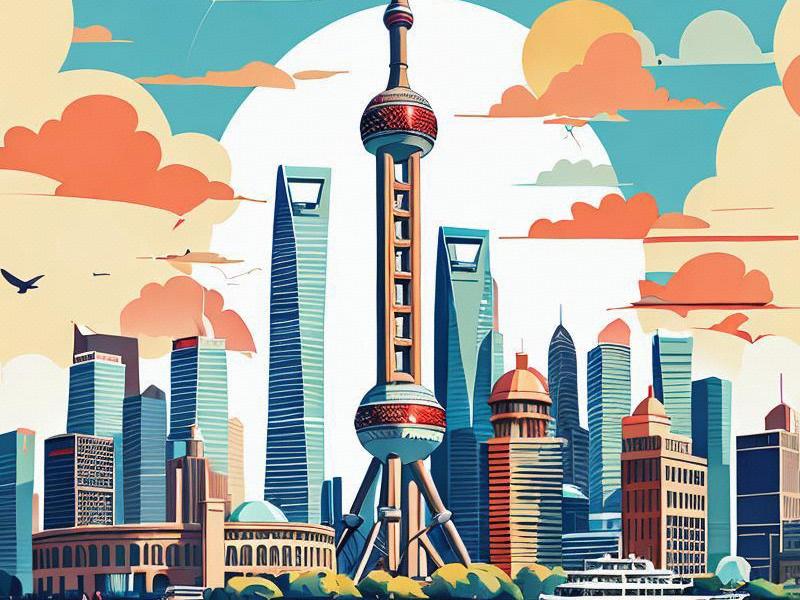
Nestled along the banks of the Huangpu River, Shanghai's story is one of transformation and resilience. Once a small fishing village, it rapidly grew into a global financial hub, all while preserving its deep-rooted cultural identity. The city's strategic location at the mouth of the Yangtze River has made it a melting pot of cultures, with influences from China's inland regions as well as from abroad.
The Bund, a waterfront area in the heart of Shanghai, stands as a testament to the city's colonial past. Once lined with grand buildings of European architecture, the Bund offers a glimpse into the city's history when it was known as the "Paris of the East." Today, it is a popular spot for both locals and tourists, who come to admire the stunning skyline of Pudong across the river, where modern skyscrapers like the Oriental Pearl Tower and the Shanghai Tower dominate the landscape.
Shanghai's commitment to preserving its historical heritage is evident in the numerous museums and historical sites scattered throughout the city. The Shanghai Museum, housed in the former Chinese Art Palace, is renowned for its extensive collection of ancient Chinese art, including ceramics, bronzes, calligraphy, and paintings. The museum not only showcases the city's rich cultural history but also serves as a platform for cultural exchanges with the rest of the world.
Art and culture thrive in Shanghai, with the city boasting a dynamic contemporary art scene. The M50 Creative Park, located in the former silk factory district of Songjiang, has become a haven for artists and galleries. It houses over 100 art studios and galleries, making it one of the largest concentrations of contemporary art in Asia. The park attracts both domestic and international artists, offering a space for creativity and innovation.
上海龙凤阿拉后花园 The city's vibrant theater scene is another aspect of its cultural vibrancy. From traditional Chinese opera to avant-garde performances, Shanghai offers a wide range of theatrical experiences. The Shanghai Grand Theatre, a landmark building designed by French architect Paul Andreu, is home to a variety of performances, including ballets, operas, and symphony concerts. It stands as a symbol of the city's dedication to the arts and its role as a cultural hub.
Cultural festivals and events further enhance Shanghai's reputation as a cultural metropolis. The Shanghai International Film Festival, one of the oldest and most prestigious film festivals in Asia, attracts filmmakers and cinephiles from around the globe. The festival not only showcases the latest in filmmaking but also provides a platform for cultural exchange and dialogue.
The city's culinary scene is yet another reflection of its cultural diversity. Shanghai cuisine, known for its sweet and savory flavors, is a highlight for food lovers. From traditional dishes like Xiaolongbao (soup dumplings) and Shengjianbao (pan-fried dumplings) to modern fusion cuisine, Shanghai offers a culinary experience that is both authentic and innovative.
上海龙凤419官网 Shanghai's cultural scene is not limited to the city center; it extends to its surrounding areas, each with its own unique cultural identity. The French Concession, with its tree-lined streets and charming cafes, offers a glimpse into the city's colonial past. The Yu Garden, a classical Chinese garden in the heart of the Old City, provides a serene escape from the bustling urban life, with its meticulously designed landscapes and traditional architecture.
The city's commitment to sustainability and green spaces also plays a role in its cultural identity. Zhongshan Park, one of the oldest parks in Shanghai, is a popular destination for locals and visitors alike. It features beautiful gardens, historical buildings, and cultural exhibits, making it a place where people can connect with nature and history.
Shanghai's cultural metropolis status is further strengthened by its role as a global city. The city's international airport, a major transportation hub, facilitates the movement of people and ideas, contributing to its cosmopolitan character. The presence of numerous multinational corporations and international organizations has made Shanghai a center for business and culture, attracting talent and fostering innovation.
爱上海419 The city's government has also played a significant role in promoting its cultural development. Initiatives such as the construction of new cultural venues, the preservation of historical sites, and the support of local artists and cultural organizations have contributed to the city's vibrant cultural scene. The Shanghai Municipal Government's focus on creating a livable and sustainable city ensures that cultural development goes hand in hand with urban planning and environmental protection.
In conclusion, Shanghai's status as a vibrant cultural metropolis is well-deserved. Its rich historical heritage, dynamic art scene, diverse culinary offerings, and commitment to sustainability make it a unique destination that attracts people from all over the world. As Shanghai continues to grow and evolve, its cultural identity remains a cornerstone of its identity, ensuring that it remains a beacon of culture and creativity in the 21st century.
